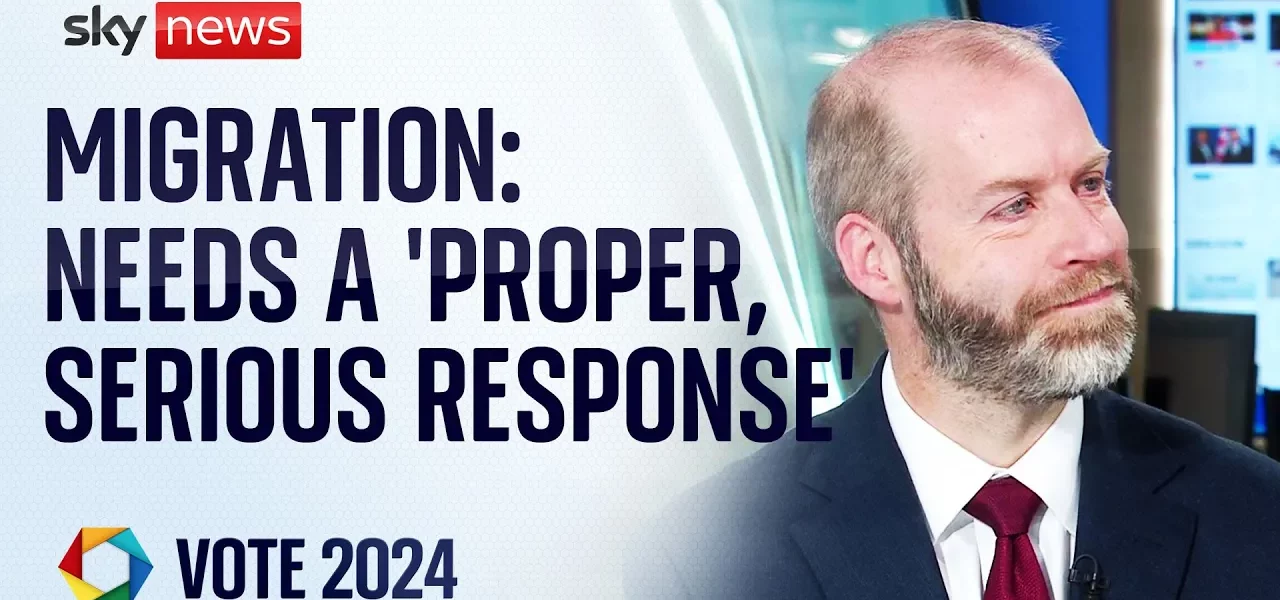Jonathan Reynolds Discusses Election, Migration, and Trade Policies

In a recent interview, Jonathan Reynolds, the shadow business energy and industrial strategy secretary, shared his insights on the upcoming election, migration challenges, banking accessibility, and trade relations with Europe. This article delves into his key points, providing a comprehensive overview of his stance on these pressing issues.
Introduction
The political landscape in the UK is at a pivotal moment as the nation approaches an important election. Jonathan Reynolds emphasizes that the outcome is far from predetermined, urging voters to consider the stakes involved. He calls for a mandate for the Labour Party, highlighting the need for change and a serious approach to current issues, particularly migration and economic policies. This article explores Reynolds’ perspectives on these matters and their implications for the future of the country.
The Importance of the Election
In discussing the upcoming election, Reynolds points out that public discourse is prematurely focusing on outcomes rather than the ongoing electoral process. He states that there is a significant amount at stake, as voters must decide whether to continue on the current path or to embrace change. Here are some key points he raises:
- The election’s outcome is uncertain and cannot be taken for granted.
- Voters should actively participate and make their voices heard.
- A call for Labour to receive a strong mandate to enact necessary changes.
Migration: Challenges and Solutions
Reynolds addresses the complex issue of migration, emphasizing that it is a global challenge requiring thoughtful and effective responses. Key discussions include:
Stopping Illegal Migration
When asked about the feasibility of stopping illegal boats in the next five years, Reynolds expresses optimism about making a significant difference. He critiques the current government’s Rwanda scheme, arguing that it lacks a serious and effective framework to address the root causes of illegal migration.
Legal Immigration and Workforce Needs
Transitioning to legal immigration, Reynolds highlights that many migrants come to fill crucial roles in the economy, particularly in healthcare and social care. He points out:
- Immigration should not be viewed solely as a negative issue but as a necessary component of the economy.
- There is a need for proper skills training and development programs to reduce reliance on immigration.
- Policies must address labor shortages while ensuring a balanced approach to immigration levels.
Revitalizing High Street Banking
Reynolds discusses the importance of maintaining physical banking services in town centers, which he believes contribute to community well-being and economic health. His proposals include:
Banking Hubs Initiative
He advocates for the establishment of banking hubs where multiple banks can provide services in a single location. This initiative aims to ensure that small businesses have access to essential banking services, particularly cash deposits.
Balancing Tradition with Innovation
While acknowledging the rise of digital banking, Reynolds argues that physical banking still plays a vital role, especially for smaller enterprises that require cash transactions. He emphasizes that:
- Banking hubs will cater to diverse community needs.
- Efforts to maintain a physical banking presence must be balanced with modern digital solutions.
Trade Relations with Europe
Reynolds outlines the Labour Party’s vision for improving trade relationships with Europe, addressing the complexities of post-Brexit negotiations. He states that:
Mutually Beneficial Agreements
There are several areas where Labour can negotiate mutually beneficial agreements, including:
- Mutual recognition of professional qualifications.
- Establishing veterinary agreements to facilitate smoother trade in agricultural products.
- Addressing the internal politics that have hindered effective negotiations.
A Future-Focused Approach
Reynolds stresses the importance of forward-thinking policies that enhance the UK’s trading relationships globally. He believes that practical changes can be achieved without unnecessary trade-offs, emphasizing the need for:
- A clear strategy for enhancing trade relations with Europe and beyond.
- Addressing historical grievances to foster better cooperation.
Conclusion
In summary, Jonathan Reynolds presents a compelling case for why the upcoming election is crucial for the future of the UK. He advocates for a thoughtful approach to migration, revitalization of high street banking, and improved trade relations with Europe. As the Labour Party seeks to gain a strong mandate, Reynolds encourages voters to consider the implications of their choices carefully. For those who desire change and a more equitable economy, he urges them to vote Labour. Stay informed and engaged with these critical issues as the election approaches.
Read more about Labour’s policies on immigration and the economy.
“`




